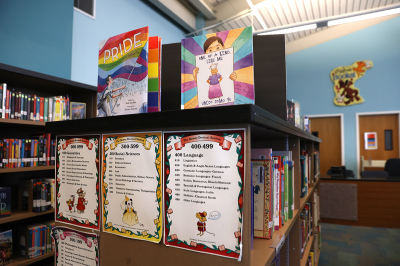
Respect and civility are basic civic virtues that ground our ability to live peacefully alongside people with whom we disagree. Yet proponents of gender ideology boil these concepts down to simply affirmation and agreement. Instead of civility and respect, children at some public schools are taught one-sided ideologies in the name of these virtues.
The oral arguments at the U.S. Supreme Court in Mahmoud v. Taylor on April 22 demonstrated this fact. At issue in the case is Montgomery County, Maryland’s implementation of an “inclusivity curriculum” that features a variety of LGBT-themed storybooks for young children. Parents objected when the school refused to allow opt-outs from the curriculum.
During oral argument, Justice Samuel Alito pressed Montgomery County’s lawyer, Alan Schoenfeld, on whether the books in question simply represent exposure to the existence of same-sex couples, or something more. At a bare minimum, books in the curriculum, such as Uncle Bobby’s Wedding, portray same-sex marriage or gender fluidity in a positive light. These lifestyles are shown to be just as acceptable as opposite-sex marriage and accepting one’s biological sex. Alito therefore asked, “Why is the Montgomery County Board of Education in this argument running away from what they clearly want to say? They have a view that they want to express on these subjects, and maybe it’s a very good view, but they have a definite view, and that’s the whole point of this curriculum, is it not?”
In response to this, Schoenfeld avoided addressing the idea that the school is teaching affirmation of same-sex marriage and gender fluidity. He stated instead that “the Board wants to teach civility and respect for difference in the classroom. There is obviously an incidental message in some of these books that these life choices and these lifestyles are worthy of respect. I don’t know how you can teach students to respect each other without teaching that.”
That statement betrays a dangerously narrow conception of civility and respect. It equates respecting lifestyle and choices with respecting people themselves. Believing that someone’s lifestyle is immoral yet still respecting them as a person is out of the picture in this philosophy.
The same goes for civility. The implication is that you cannot be civil to someone with whom you disagree. Yet civility is a virtue particularly appropriate to situations of disagreement, even implying some kind of tension: We wouldn’t say we’re merely “civil” to our families unless there’s a disagreement. But in a courtroom, lawyers can disagree vehemently while being “civil” to each other.
Considering that all of us disagree with something and make bad decisions on a frequent basis, gender ideology’s understanding of respect and civility all but destroys Christians’ prerogative to love our faulty neighbors, let alone ourselves. It pushes us away from reflecting the God who loves those who disagree with him, even to the point of dying for them. But a distortion that makes “love” antithetical to disagreement is woven throughout secular culture. Beneath the lawyer’s words is the idea that respect and civility require affirmation and agreement.
Teaching civility and respect is not the same as teaching that same-sex marriage and gender fluidity are good things. Advocates for gender ideology should stop tarnishing the good names of virtues with a bait-and-switch that substitutes forced agreement for loving those with whom you disagree. Loving and respecting the people with whom you disagree grounds our foundational freedoms to speak and think as we desire, a human right of everyone, no matter their choices or beliefs. The curriculum at issue in Mahmoud is not simply about civility and respect; it’s about teaching children to adopt a particular view on important issues, even when their parents don’t agree.
In Mahmoud, the Supreme Court has the opportunity to affirm the freedom of parents. For the sake of civility and respect, let’s hope it does.
Kathryn Homoki is a communications integrity specialist at Alliance Defending Freedom (@ADFLegal).
















